-
Improving oil recovery, aiding environmental cleanup
Researchers have taken a new look at an old, but seldom-used technique developed by the petroleum industry to recover oil, and learned more about why it works, how it could be improved, and how it might be able to make a comeback not only in oil recovery but also environmental cleanup
-
-
Federal mapping tool used in Gulf spill expanded to Arctic
A new federal interactive online mapping tool used by emergency responders during the Deepwater Horizon oil spill has been expanded to include the Arctic, and will help address numerous challenges in the Arctic posed by increasing ship traffic and proposed energy development
-
-
Earthquake risk looms large in the Pacific Northwest
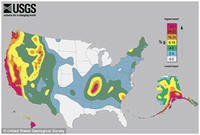
A comprehensive analysis of the Cascadia Subduction Zone off the Pacific Northwest coast confirms that the region has had numerous earthquakes over the past 10,000 years, and suggests that the southern Oregon coast may be most vulnerable based on recurrence frequency
-
-
Earth’s oceans, ecosystems still absorbing about half the greenhouse gases emitted by people
Earth’s oceans, forests, and other ecosystems continue to soak up about half the carbon dioxide emitted into the atmosphere by human activities, even as those emissions have increased, according to a study published yesterday in the journal Nature
-
-
Under industry pressure, DHS drops chemical plant employee screening proposal
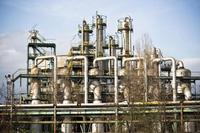
Security experts agree that short of a nuclear attack on a U.S. city, the most casualty-heavy disaster would occur as a result of an accident in, or a terrorist attack on, a chemical plant which would release a cloud of toxic fumes; there are about 15,000 plants in the United States which produce, process, use, or store volatile and toxic chemicals; more than 300 of the these plants are so close to large population centers, that a chemical release in any one of them would cause more than 50,000 casualties; DHS wanted to have employees in these plants screened for potential ties terrorism, but the chemical industry objected, saying this would be too costly; last Thursday DHS pulled the proposal
-
-
A second look at off-shore use of vertical-axis wind turbines
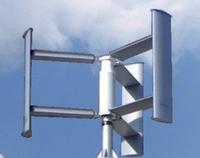
Wind energy researchers are re-evaluating vertical axis wind turbines (VAWTs) to help solve some of the problems of generating energy from offshore breezes; though VAWTs have been around since the earliest days of wind energy research, VAWT architecture could transform offshore wind technology
-
-
Raytheon's Space Fence technology tracks space debris

Space debris threatens systems the U.S. military and economy depend on every day, including satellites that power navigation, weather and critical infrastructures; the Space Fence program is capable of detecting more and much smaller objects in low earth orbit
-
-
Surface coal mining destroying West Virginia streams, rivers
More than 22 percent of streams and rivers in southern West Virginia have been degraded to the point they may now qualify as impaired under state criteria; the substantial losses in aquatic insect biodiversity and increases in salinity is linked to sulfates and other pollutants in runoff from mines often located miles upstream
-
-
Science group: storing spent nuclear fuel in dry casks significantly safer then wet pools storage
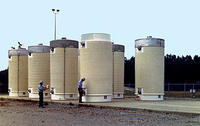
An NRC report on the lessons of the Fukushima disaster says that storing spent nuclear fuel in wet pools is “adequate” to protect the public; a science groups says there is a significantly safer way to store the 55,000 tons of radioactive waste currently stored by the 104 nuclear power plants operating in the United States: transferring the spent fuel to dry casks
-
-
Chronic 2000-4 U.S. drought, worst in 800 years, may be the "new normal"
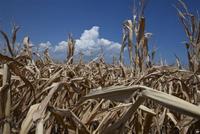
The chronic drought that hit western North America from 2000 to 2004 left dying forests and depleted river basins in its wake and was the strongest in 800 years, scientists have concluded, but they say those conditions will become the “new normal” for most of the coming century
-
-
Food prices in U.S., world set to rise as a result of drought
The U.S. Midwest is suffering the worst drought since 1956, and a total of 1,369 counties in thirty-one states across the United States have been designated for disaster aid; the prolonged drought will lead to an increase in food prices in 2013 as animal feed costs increase
-
-
Global warming unequivocal in its advance, says NCAA expert
Global warming is unequivocal in its advance and will lead to more record-setting temperatures, says Warren Washington, a senior scientist at the National Center for Atmospheric Research; in a talk at Sandia Lab, Washington presented graph after graph showing how various atmospheric processes have combined to create stronger rainfall near the equator and more intense droughts in the subtropics, as well as sea-level rises and increased storm surges
-
-
Predictions by climate models are flawed, says MIT meteorology expert
Massachusetts Institute of Technology professor Richard Lindzen, a global warming skeptic, says that too much is being made of climate change by researchers seeking government funding; he said their data and their methods did not support their claims; for thirty years, climate scientists have been “locked into a simple-minded identification of climate with greenhouse-gas level. That climate should be the function of a single parameter (like CO2) has always seemed implausible. Yet an obsessive focus on such an obvious oversimplification has likely set back progress by decades,” Lindzen said
-
-
Large, magnitude 8 earthquakes hit New Zealand with regularity

A new study finds that very large earthquakes have been occurring relatively regularly on the Alpine Fault along the southwest coastline of New Zealand for at least 8,000 years
-
-
Studying the physics of avalanches

Snow avalanches, a real threat in countries from Switzerland to Afghanistan, are fundamentally a physics problem: What are the physical laws that govern how they start, grow, and move, and can theoretical modeling help predict them? New study offers answers
-
- All
- Regional
- Water
- Biometrics
- Borders/Immig
- Business
- Cybersecurity
- Detection
- Disasters
- Government
- Infrastructure
- International
- Public health
- Public Safety
- Communication interoperabillity
- Emergency services
- Emergency medical services
- Fire
- First response
- IEDs
- Law Enforcement
- Law Enforcement Technology
- Military technology
- Nonlethal weapons
- Nuclear weapons
- Personal protection equipment
- Police
- Notification /alert systems
- Situational awareness
- Weapons systems
- Sci-Tech
- Sector Reports
- Surveillance
- Transportation
Advertising & Marketing: advertise@newswirepubs.com
Editorial: editor@newswirepubs.com
General: info@newswirepubs.com
2010-2011 © News Wire Publications, LLC News Wire Publications, LLC
220 Old Country Road | Suite 200 | Mineola | New York | 11501
Permissions and Policies
Editorial: editor@newswirepubs.com
General: info@newswirepubs.com
2010-2011 © News Wire Publications, LLC News Wire Publications, LLC
220 Old Country Road | Suite 200 | Mineola | New York | 11501
Permissions and Policies
